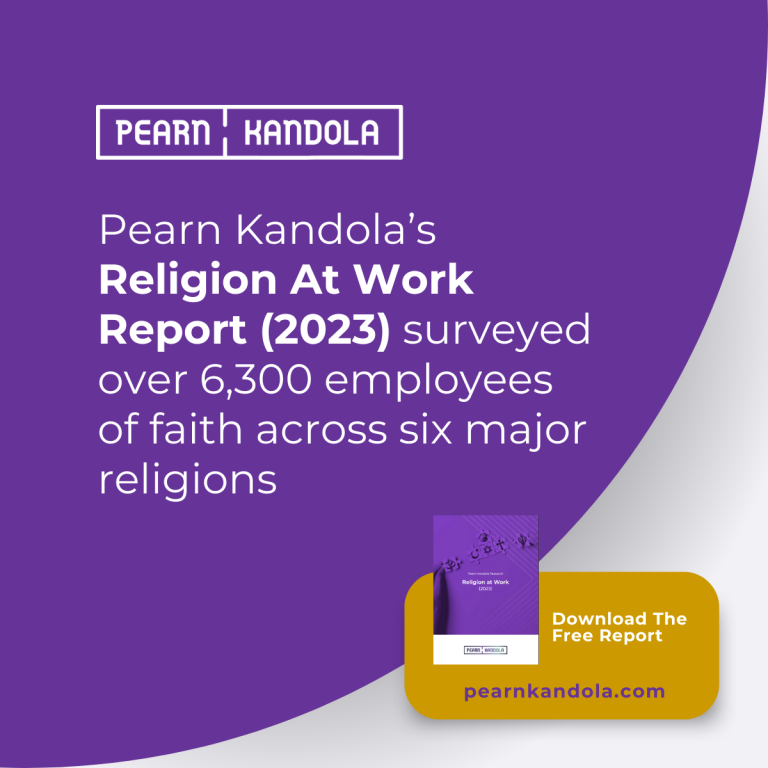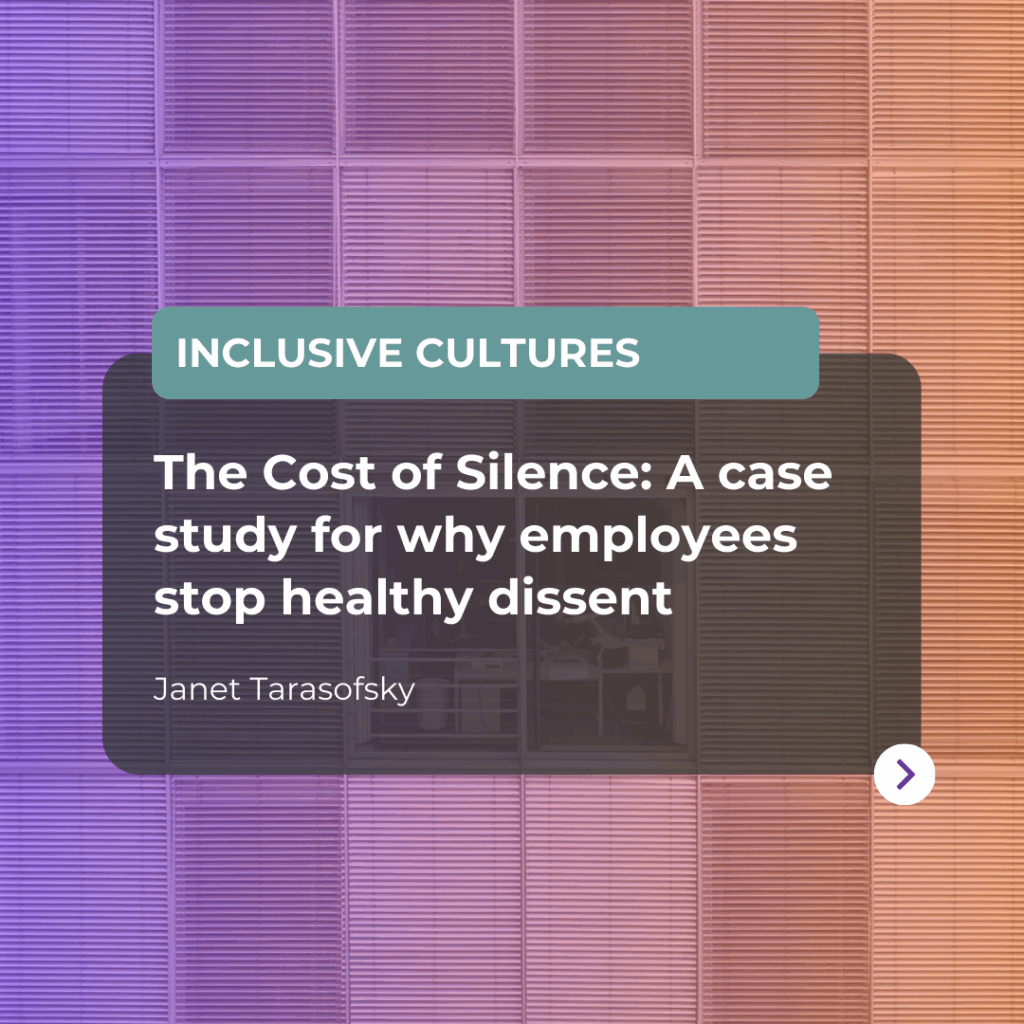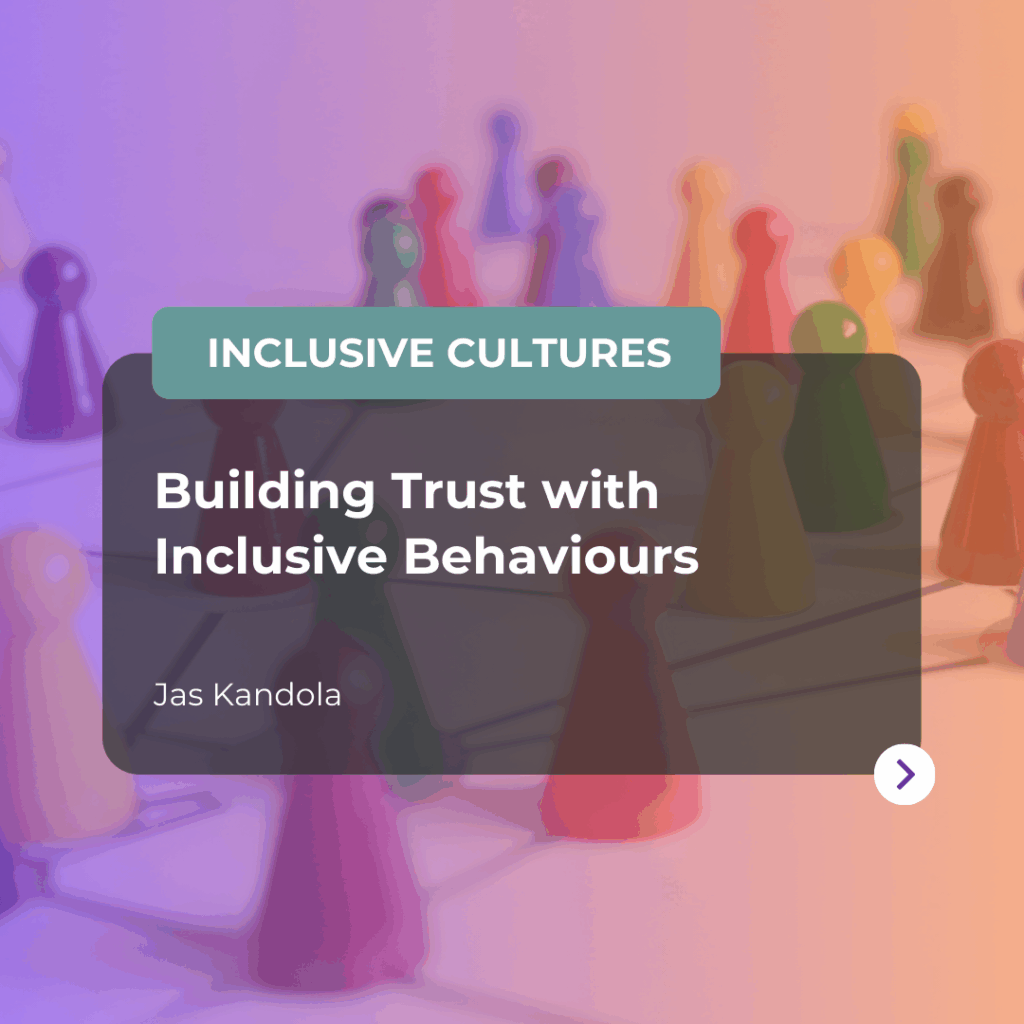We are delighted to release our latest research, thought to be the largest of its kind, to understand the experiences of employees of faith in the workplace.
Pearn Kandola’s Religion At Work Report (2023) surveyed over 6,000 employees of faith in the UK and the US. The sample includes over 1,000 each in six major world religions: Christianity, Islam, Hinduism, Buddhism, Sikhism and Judaism.
You can download the report in full on our Research page, and view a summary below.
Religion At Work (2023) Report Summary
Organisations may believe they are promoting religious inclusivity, but their employees do not necessarily agree. Religion at work is a topic that is largely overlooked by organisations and within organisational research, even though for people of faith, this is an integral part of their lives and identity.
Whilst some initial evidence exists to suggest that religious employees may be experiencing barriers to the expression of religious identity at work, the research around the topic of religion at work is extremely limited.
We lack a clear understanding of the barriers faced by religious employees at work, particularly within the UK. Pearn Kandola’s Religion at Work (2023) research project aims to raise awareness around employee experiences of expressing religious identity at work. We set out to understand the workplace experiences of people of faith, the obstacles they face regarding religious expression, and what organisations can do to create more inclusive environments.
Religion At Work (2023) Report Sample
In 2021, using contacts within faith groups and the online research recruitment platform Prolific, 6,315 participants across six religious groups contributed to the survey. Participants were eligible to participate if they lived in the UK or US and were a follower of Judaism, Sikhism, Buddhism, Hinduism, Islam, or Christianity.
In 2022, we conducted a follow-up qualitative survey to explore some issues that had emerged in more depth. 470 people participated in this part of the research.
Some of the key findings were:
- 19% of participants had a request to take annual leave to celebrate religious holidays or festivals rejected.
- Only 36% of participants felt that their line manager was happy for them to take time off for religious festivals.
- 47% of people did not feel comfortable discussing religious festivals they celebrate at work.
- Of those who wore religious dress or symbols in other aspects of their lives, only 23% were prepared to do this at work.
- Of those who did wear religious dress or symbols at work, only 16% felt comfortable doing so.
Overall, it is fair to say that people of all faiths felt as if they were in the minority in the workplace, including Christians. Members of all groups had experienced similar issues about religious expression.
Where people had been open about expressing their religious beliefs, there were some positive outcomes, including better awareness and understanding, improved relationships with co-workers and increased well-being at work.
Negative outcomes included stereotyping and discrimination, being mocked and mistreated, being excluded, and having a sense of isolation.
Our research has demonstrated that although there are many positive benefits to expressing religious beliefs at work, there are barriers which prevent people from doing so. Many people are not receiving the support they need to express or practice their religious beliefs at work. Religion is often overlooked within diversity and inclusion strategies, which may lead to managers being unaware of the accommodations their employees may need to express or observe their beliefs.
In an organisation where religious expression is perceived to be discouraged, employees may feel unable to communicate their needs to their employer. Those who have shared their religious beliefs at work have experienced variable outcomes. When working within a diverse organisation with an open and inclusive culture, these outcomes are often positive. Within these organisations, relationships between co-workers are improved as people are interested in learning more about religious beliefs and offer support and encouragement to those who want to observe or express their beliefs at work.
However, our research has highlighted that many people do not feel comfortable expressing their religious beliefs at work. When an organisation lacks this sense of inclusion and openness, employees may fear the consequences of expressing their religious beliefs or face judgement and exclusion if they decide to disclose them.
Religion At Work (2023) Report Recommendations For Employers
The report proposes four recommendations to overcome barriers to religious expression at work and create the conditions for religious expression to result in positive outcomes:
- Review existing policies and procedures
- Take an individualised approach
- Develop skills and knowledge
- Develop an inclusive culture
To view these recommendations in more detail you can download the full report for free on our Research page.
We have also developed a brand-new programme, using our findings to shine a light on religious expression in the workplace and help build more inclusive, knowledgeable organisations.
For more information, email us at info@pearnkandola.com.






